African Parks would like to like to thank each and every one of our funders for supporting our work to protect Africa's wildlife and remaining wild landscapes.
Our conservation progress would not be possible without the funding support we receive from Governments, multi-lateral institutions, conservation organisations, family foundations and individuals. We would like to thank our strategic partners for enabling us to make substantial and a long-term impact on wildlife conservation in Africa.
These donations have been critical in helping us accomplish our track record to date, through the implementation of effective management plans and conservation strategies year after year. This allows us to plan for the future, and to make a real impact.
African Parks would like to like to thank each and every one of our funders for supporting our work to protect Africa's wildlife and remaining wild landscapes.
Our long-term impact on wildlife conservation in Africa would not be possible without a core group of funders who provide largely flexible, multiyear funding of more than US$500K per year. We also acknowledge several European strategic private funders who prefer to remain anonymous.
Together, these strategic partners have anchored our work and enabled our growth with their incredibly generous and mostly unrestricted support.
-
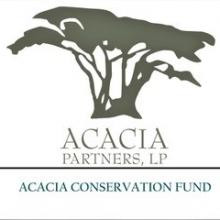 Acacia Conservation FundAcacia Conservation Fund (ACF) – the philanthropic operation of Acacia Partners, ACF makes conservation investments to address the declining biological diversity of life on Earth. ACF supports results-orientated, entrepreneurial organisations that maximise the impact of their philanthropic dollar and focus on proving, and then expanding, their impacts over time. Since 2015, ACF has provided unrestricted support to African Parks, while also investing in African Parks’ Incubator Programme, which assists select NGOs with the implementation of the African Parks’ model.
Acacia Conservation FundAcacia Conservation Fund (ACF) – the philanthropic operation of Acacia Partners, ACF makes conservation investments to address the declining biological diversity of life on Earth. ACF supports results-orientated, entrepreneurial organisations that maximise the impact of their philanthropic dollar and focus on proving, and then expanding, their impacts over time. Since 2015, ACF has provided unrestricted support to African Parks, while also investing in African Parks’ Incubator Programme, which assists select NGOs with the implementation of the African Parks’ model. -
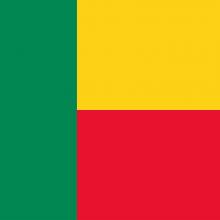 The Government of BeninThe Government of Benin – the Government made a significant 5-year commitment of US$6m when President Patrice Talon invited African Parks to assume management of Pendjari National Park in the W-Arly- Pendjari (WAP) Complex that spans Benin, Burkina Faso, and Niger. The aim of the partnership is to preserve, manage, and develop this unique landscape. In addition, the Government of Benin has been instrumental in expanding our footprint into W Benin through a funding commitment of US$5m. Their contribution has been critical in attracting other private and institutional funding to support the management of Pendjari and Park W-Benin in Benin, which represents a significant portion of the largest intact wild ecosystem in West Africa.
The Government of BeninThe Government of Benin – the Government made a significant 5-year commitment of US$6m when President Patrice Talon invited African Parks to assume management of Pendjari National Park in the W-Arly- Pendjari (WAP) Complex that spans Benin, Burkina Faso, and Niger. The aim of the partnership is to preserve, manage, and develop this unique landscape. In addition, the Government of Benin has been instrumental in expanding our footprint into W Benin through a funding commitment of US$5m. Their contribution has been critical in attracting other private and institutional funding to support the management of Pendjari and Park W-Benin in Benin, which represents a significant portion of the largest intact wild ecosystem in West Africa. -
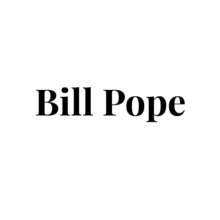 Bill PopeBill Pope – over a 2-week period in February 2022, Bill travelled to four parks under African Parks’ management – Zakouma and Ennedi in Chad, Odzala in the Republic of Congo, and Chinko in the Central African Republic (CAR). It was an ambitious trip to some of our most remote parks in central Africa and the Sahel. During this trip, Bill was able to meet some of the incredible people who are working, day in and day out, to protect and preserve these extraordinary landscapes. Inspired by the people and work of African Parks, Bill made a generous multiyear commitment at the strategic partner level.
Bill PopeBill Pope – over a 2-week period in February 2022, Bill travelled to four parks under African Parks’ management – Zakouma and Ennedi in Chad, Odzala in the Republic of Congo, and Chinko in the Central African Republic (CAR). It was an ambitious trip to some of our most remote parks in central Africa and the Sahel. During this trip, Bill was able to meet some of the incredible people who are working, day in and day out, to protect and preserve these extraordinary landscapes. Inspired by the people and work of African Parks, Bill made a generous multiyear commitment at the strategic partner level. -
 The Dhanam FoundationThe Dhanam Foundation – established in 2004 the Foundation is an independent non-profit private organisation based in Palo Alto, California. It focuses, primarily, on education, child welfare and human services. In 2015, the Foundation began to include nature conservation and land protection as part of its philanthropic portfolio. In 2021, the Foundation made a significant commitment to African Parks, to support the restoration of Matusadona National Park in Zimbabwe as a wildlife sanctuary and safari destination with globally significant populations of elephant, buffalo and rhino. The Foundation has also provided supplemental funding to support translocations for the park’s ongoing restoration.
The Dhanam FoundationThe Dhanam Foundation – established in 2004 the Foundation is an independent non-profit private organisation based in Palo Alto, California. It focuses, primarily, on education, child welfare and human services. In 2015, the Foundation began to include nature conservation and land protection as part of its philanthropic portfolio. In 2021, the Foundation made a significant commitment to African Parks, to support the restoration of Matusadona National Park in Zimbabwe as a wildlife sanctuary and safari destination with globally significant populations of elephant, buffalo and rhino. The Foundation has also provided supplemental funding to support translocations for the park’s ongoing restoration. -
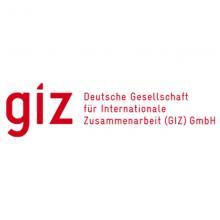 The Deutsche Gesellschaft für Internationale Zusammenarbeit (GIZ)The Deutsche Gesellschaft für Internationale Zusammenarbeit (GIZ) – The GIZ is Germany’s leading provider of international cooperation services. As a federal enterprise, the GIZ supports the German Government in achieving its objectives in the field of international cooperation for sustainable development. Since the start of African Parks’ engagement in the W-Arly-Pendjari Complex, the GIZ has provided funding to support the aerial survey in 2019 and a feasibility study for the rehabilitation of the Arly and W Burkina Faso national parks in 2020. In 2021, the GIZ made a significant contribution to the implementation of conservation and community development activities in Pendjari and W in Benin and cofounded a Priority Intervention Plan in W Niger.
The Deutsche Gesellschaft für Internationale Zusammenarbeit (GIZ)The Deutsche Gesellschaft für Internationale Zusammenarbeit (GIZ) – The GIZ is Germany’s leading provider of international cooperation services. As a federal enterprise, the GIZ supports the German Government in achieving its objectives in the field of international cooperation for sustainable development. Since the start of African Parks’ engagement in the W-Arly-Pendjari Complex, the GIZ has provided funding to support the aerial survey in 2019 and a feasibility study for the rehabilitation of the Arly and W Burkina Faso national parks in 2020. In 2021, the GIZ made a significant contribution to the implementation of conservation and community development activities in Pendjari and W in Benin and cofounded a Priority Intervention Plan in W Niger. -
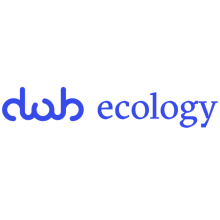 DOB EcologyDOB Ecology – a Dutch foundation, DOB Ecology believes that strong and healthy ecosystems are vital ingredients for life, wellbeing, and sustainable development. The mission of DOB Ecology is to support partners that work to protect and restore threatened ecosystems and (re)build the conditions for resilient livelihoods of local communities. The multiyear partnership between DOB Ecology and African Parks revolves around intelligence-based conservation in Odzala-Kokoua National Park.
DOB EcologyDOB Ecology – a Dutch foundation, DOB Ecology believes that strong and healthy ecosystems are vital ingredients for life, wellbeing, and sustainable development. The mission of DOB Ecology is to support partners that work to protect and restore threatened ecosystems and (re)build the conditions for resilient livelihoods of local communities. The multiyear partnership between DOB Ecology and African Parks revolves around intelligence-based conservation in Odzala-Kokoua National Park. -
 Donna and Marvin SchwartzExtraordinary advocates for conservation and animal-related causes, Donna and Marvin have a special interest in, and strong commitment to, saving elephants and other large species threatened by poaching. The Schwartz’s relationship with African Parks began in 2012 and they have provided critical support to our anti-poaching work in central Africa. Their generosity has supported diverse efforts in Garamba, Chinko and Odzala- Kokoua, as well as other parks with significant elephant populations, such as Zakouma National Park in Chad.
Donna and Marvin SchwartzExtraordinary advocates for conservation and animal-related causes, Donna and Marvin have a special interest in, and strong commitment to, saving elephants and other large species threatened by poaching. The Schwartz’s relationship with African Parks began in 2012 and they have provided critical support to our anti-poaching work in central Africa. Their generosity has supported diverse efforts in Garamba, Chinko and Odzala- Kokoua, as well as other parks with significant elephant populations, such as Zakouma National Park in Chad. -
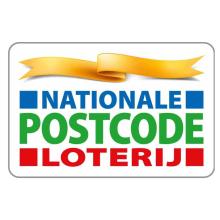 Dutch Postcode LotteryThe Dutch Postcode Lottery – the Lottery has been raising funds since 1989 to support organisations working towards a fairer and greener world. At least 40% of every ticket sold goes to charity. The Lottery has steadily grown to become the biggest charity lottery in the Netherlands, supporting 148 non-governmental organisations. Since its founding, the Lottery has dispensed over €7.5b. Over the last five years, African Parks has received €7.5m. In 2018, we received a multiyear Extra Project award for Ennedi Natural and Cultural Reserve. In 2020, we were the recipient, together with World Wide Fund for Nature (WWF) and Peace Parks, of €16.9m for a Dreamfund project to boost the ecological and socio-economic development of the world’s largest terrestrial transfrontier conservation area, the Kavango Zambezi (KAZA), which helped us fund operations in developing Kafue National Park. In 2022, African Parks received €900,000 in unrestricted funding.
Dutch Postcode LotteryThe Dutch Postcode Lottery – the Lottery has been raising funds since 1989 to support organisations working towards a fairer and greener world. At least 40% of every ticket sold goes to charity. The Lottery has steadily grown to become the biggest charity lottery in the Netherlands, supporting 148 non-governmental organisations. Since its founding, the Lottery has dispensed over €7.5b. Over the last five years, African Parks has received €7.5m. In 2018, we received a multiyear Extra Project award for Ennedi Natural and Cultural Reserve. In 2020, we were the recipient, together with World Wide Fund for Nature (WWF) and Peace Parks, of €16.9m for a Dreamfund project to boost the ecological and socio-economic development of the world’s largest terrestrial transfrontier conservation area, the Kavango Zambezi (KAZA), which helped us fund operations in developing Kafue National Park. In 2022, African Parks received €900,000 in unrestricted funding. -
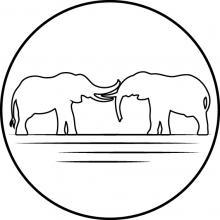 The Elephant Crisis FundThe Elephant Crisis Fund (ECF) – a joint initiative of Save the Elephants and the Wildlife Conservation Network, the ECF is a flexible and responsive fund that supports the best efforts ofthe most trusted organisations globally, working to secure a future for elephant in Africa. Since 2015, the ECF has not only contributed more than US$4.7m to African Parks, but also expertise on best practices in elephant conservation. This has benefitted critical surveillance, intelligence-based protection, and human-elephant conflict mitigation activities for some of our most threatened elephant populations.
The Elephant Crisis FundThe Elephant Crisis Fund (ECF) – a joint initiative of Save the Elephants and the Wildlife Conservation Network, the ECF is a flexible and responsive fund that supports the best efforts ofthe most trusted organisations globally, working to secure a future for elephant in Africa. Since 2015, the ECF has not only contributed more than US$4.7m to African Parks, but also expertise on best practices in elephant conservation. This has benefitted critical surveillance, intelligence-based protection, and human-elephant conflict mitigation activities for some of our most threatened elephant populations. -
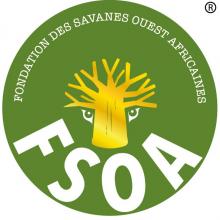 The Fondation des Savanes Ouest-Africaines (FSOA)The Fondation des Savanes Ouest- Africaines (FSOA) or West African Savannah Foundation (WASF) – the Foundation is a conservation trust fund promoting the preservation of protected areas of the WAP Complex, while advancing education, science, and local economic development. The Foundation was set up by the Benin Government and the International Union for Conservation of Nature (IUCN), with financial contributions from the Benin Government, Global Environment Facility (GEF), and Financial German Cooperation (Kreditanstalt für Wiederaufbau – KfW). The Foundation has been providing significant annual financial contributions towards management of Pendjari National Park since 2017. In 2019 to 2020, it provided 85% of funding to implement a Priority Action Plan to secure the Beninese W National Park, which evolved into a full management mandate to African Parks in June 2020. The Foundation also committed to cover full funding to establish the first 3-month plan from the African Parks mandate for the management of Park W-Benin, up to December 2020. In 2021, the FSOA contributed US$1.5m to Pendjari and W in Benin. Its larger vision is to create a sustainable source of funding and to support the synergy of activities within the W-Arly-Pendjari Complex.
The Fondation des Savanes Ouest-Africaines (FSOA)The Fondation des Savanes Ouest- Africaines (FSOA) or West African Savannah Foundation (WASF) – the Foundation is a conservation trust fund promoting the preservation of protected areas of the WAP Complex, while advancing education, science, and local economic development. The Foundation was set up by the Benin Government and the International Union for Conservation of Nature (IUCN), with financial contributions from the Benin Government, Global Environment Facility (GEF), and Financial German Cooperation (Kreditanstalt für Wiederaufbau – KfW). The Foundation has been providing significant annual financial contributions towards management of Pendjari National Park since 2017. In 2019 to 2020, it provided 85% of funding to implement a Priority Action Plan to secure the Beninese W National Park, which evolved into a full management mandate to African Parks in June 2020. The Foundation also committed to cover full funding to establish the first 3-month plan from the African Parks mandate for the management of Park W-Benin, up to December 2020. In 2021, the FSOA contributed US$1.5m to Pendjari and W in Benin. Its larger vision is to create a sustainable source of funding and to support the synergy of activities within the W-Arly-Pendjari Complex. -
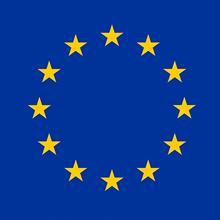 The European Union (EU)The EU has been a crucial long-standing partner of African Parks, working together towards joint conservation and development objectives in central Africa. Since 2005, this partnership has helped create areas of stability in a volatile region and attract additional funding and partners. The EU’s support has been critical in managing large landscapes, namely Garamba National Park and its periphery, Chinko Conservation Area, Ennedi Natural and Cultural Reserve, the Greater Zakouma Ecosystem, Odzala- Kokoua National Park, and W National Park in Niger. Through improved management of these ecologically important landscapes; striving towards safety and security for people and wildlife; and strengthening opportunities in green sectors, we will continue to work towards our common goals, in alignment with the EU’s NaturAfrica initiative.
The European Union (EU)The EU has been a crucial long-standing partner of African Parks, working together towards joint conservation and development objectives in central Africa. Since 2005, this partnership has helped create areas of stability in a volatile region and attract additional funding and partners. The EU’s support has been critical in managing large landscapes, namely Garamba National Park and its periphery, Chinko Conservation Area, Ennedi Natural and Cultural Reserve, the Greater Zakouma Ecosystem, Odzala- Kokoua National Park, and W National Park in Niger. Through improved management of these ecologically important landscapes; striving towards safety and security for people and wildlife; and strengthening opportunities in green sectors, we will continue to work towards our common goals, in alignment with the EU’s NaturAfrica initiative. -
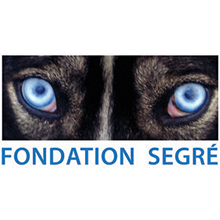 Fondation SegréFondation Segré – a Swiss foundation established in 1996, it is committed to helping protect the biodiversity of our planet through active conservation of threatened species and their habitats, and restoration of degraded ecosystems. Fondation Segré became a strategic funding partner of African Parks in 2016 and has contributed over US$7m to support a range of parks. In 2022, Fondation Segré assisted African Parks in Ennedi Natural and Cultural Reserve, Akagera National Park and the newly added Boma- Badingilo landscape.
Fondation SegréFondation Segré – a Swiss foundation established in 1996, it is committed to helping protect the biodiversity of our planet through active conservation of threatened species and their habitats, and restoration of degraded ecosystems. Fondation Segré became a strategic funding partner of African Parks in 2016 and has contributed over US$7m to support a range of parks. In 2022, Fondation Segré assisted African Parks in Ennedi Natural and Cultural Reserve, Akagera National Park and the newly added Boma- Badingilo landscape. -
 The Head and Heart FoundationThe Head and Heart Foundation – the Foundation supports organisations that protect and promote the earth’s biodiversity and conserve the natural resources and climate that species need to survive and thrive. The Foundation generously supports African Parks’ mission to conserve Africa’s national parks for current and future generations.
The Head and Heart FoundationThe Head and Heart Foundation – the Foundation supports organisations that protect and promote the earth’s biodiversity and conserve the natural resources and climate that species need to survive and thrive. The Foundation generously supports African Parks’ mission to conserve Africa’s national parks for current and future generations. -
 Howard G. Buffett FoundationThe Howard G. Buffett Foundation – the Foundation views its resources as rare risk capital that can improve conditions and create change in the most difficult circumstances and geographies. Since 2014, the Foundation has supported a range of habitat and animal conservation projects, as well as operational and security improvements, at Rwanda’s Akagera National Park. The Foundation also contributed to security and operations at Garamba National Park in support of its anti-poaching efforts and, in 2020, donated all proceeds from the sale of its Ukulima Farm in South Africa to African Parks’ ongoing operations. In 2021, the Foundation was the lead supporter of the historic translocation of 30 white rhino to Akagera National Park.
Howard G. Buffett FoundationThe Howard G. Buffett Foundation – the Foundation views its resources as rare risk capital that can improve conditions and create change in the most difficult circumstances and geographies. Since 2014, the Foundation has supported a range of habitat and animal conservation projects, as well as operational and security improvements, at Rwanda’s Akagera National Park. The Foundation also contributed to security and operations at Garamba National Park in support of its anti-poaching efforts and, in 2020, donated all proceeds from the sale of its Ukulima Farm in South Africa to African Parks’ ongoing operations. In 2021, the Foundation was the lead supporter of the historic translocation of 30 white rhino to Akagera National Park. -
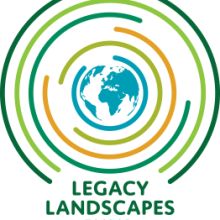 Legacy Landscapes FundLegacy Landscapes Fund (LLF) – an ambitious new financing instrument, the LLF aims to protect the world’s most outstanding natural places and close the funding gap for biodiversity conservation in the Global South. It is a joint initiative by the German Federal Ministry for Economic Cooperation and Development (BMZ), KfW Development Bank (KfW), Agence Française de Développement (AFD), Campaign for Nature (CfN), Frankfurt Zoological Society (FZS), the International Union for Conservation of Nature (IUCN), the UNESCO World Heritage Centre, and the World Wide Fund for Nature (WWF). The LLF provides financing for a period of 15 years to protected areas, with a long-term, flexible programme approach, in partnership with a philanthropic partner who provides match-funding of US$1m a year for the first five years. LLF funding commences from year six at the same rate for a further 10 years. Two protected areas managed by African Parks are among the pilot sites receiving funding from the LLF: Odzala-Kokoua National Park in the Republic of Congo and Iona National Park in Angola.
Legacy Landscapes FundLegacy Landscapes Fund (LLF) – an ambitious new financing instrument, the LLF aims to protect the world’s most outstanding natural places and close the funding gap for biodiversity conservation in the Global South. It is a joint initiative by the German Federal Ministry for Economic Cooperation and Development (BMZ), KfW Development Bank (KfW), Agence Française de Développement (AFD), Campaign for Nature (CfN), Frankfurt Zoological Society (FZS), the International Union for Conservation of Nature (IUCN), the UNESCO World Heritage Centre, and the World Wide Fund for Nature (WWF). The LLF provides financing for a period of 15 years to protected areas, with a long-term, flexible programme approach, in partnership with a philanthropic partner who provides match-funding of US$1m a year for the first five years. LLF funding commences from year six at the same rate for a further 10 years. Two protected areas managed by African Parks are among the pilot sites receiving funding from the LLF: Odzala-Kokoua National Park in the Republic of Congo and Iona National Park in Angola. -
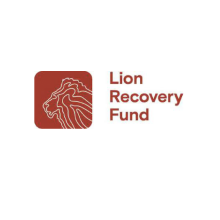 The Lion Recovery FundThe Lion Recovery Fund (LRF) – an initiative operated and managed by the Wildlife Conservation Network, the LRF is a nimble and flexible fund investing in the most innovative and effective projects across Africa to recover lion and restore their landscapes. Since 2017, the LRF has contributed more than US$3.98m to African Parks. This funding has benefitted nine different African Parks sites, with a particular focus on several parks in West and central Africa, given the extreme vulnerability of lion populations in these regions. The LRF has invested heavily in Chinko in the CAR, part of a vast 65,000 km² wilderness that has immense potential for lion recovery.
The Lion Recovery FundThe Lion Recovery Fund (LRF) – an initiative operated and managed by the Wildlife Conservation Network, the LRF is a nimble and flexible fund investing in the most innovative and effective projects across Africa to recover lion and restore their landscapes. Since 2017, the LRF has contributed more than US$3.98m to African Parks. This funding has benefitted nine different African Parks sites, with a particular focus on several parks in West and central Africa, given the extreme vulnerability of lion populations in these regions. The LRF has invested heavily in Chinko in the CAR, part of a vast 65,000 km² wilderness that has immense potential for lion recovery. -
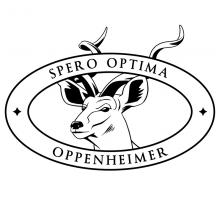 Oppenheimer Generations FoundationOppenheimer Generations Foundation provides catalytic, flexible and discretionary funding in support of their commitment to building sustainable and prosperous societies. The Foundation began funding Bazaruto Archipelago National Park in 2018, committed US$2 million over five years to bring this marine area under African Parks’ management and unlock the value for its communities.
Oppenheimer Generations FoundationOppenheimer Generations Foundation provides catalytic, flexible and discretionary funding in support of their commitment to building sustainable and prosperous societies. The Foundation began funding Bazaruto Archipelago National Park in 2018, committed US$2 million over five years to bring this marine area under African Parks’ management and unlock the value for its communities. -
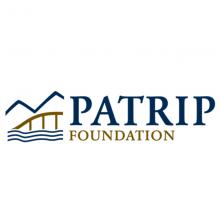 PATRIP FoundationPATRIP Foundation – a nonprofit organisation, the Foundation channels multi-donor funds into cross-border projects aimed at increasing stability and Kafue National Park, Zambia, is one of the last expanses of the iconic Zambezian ecoregion and home to abundant wildlife, including stable numbers of lion integration in fragile regions. PATRIP has been dedicated to improving the security, conservation and social development of the border regions of northern Benin, through funding €1.7m worth of infrastructure inside and outside W National Park. This project is financed by the German Federal Foreign Office through the PATRIP Foundation and the German development bank KfW.
PATRIP FoundationPATRIP Foundation – a nonprofit organisation, the Foundation channels multi-donor funds into cross-border projects aimed at increasing stability and Kafue National Park, Zambia, is one of the last expanses of the iconic Zambezian ecoregion and home to abundant wildlife, including stable numbers of lion integration in fragile regions. PATRIP has been dedicated to improving the security, conservation and social development of the border regions of northern Benin, through funding €1.7m worth of infrastructure inside and outside W National Park. This project is financed by the German Federal Foreign Office through the PATRIP Foundation and the German development bank KfW. -
 Fentener van Vlissingen FamilyThe late Paul Fentener van Vlissingen provided the bulk of the initial funding that established African Parks in 2000. In 2010, his daughters Alicia and Tannetta Fentener van Vlissingen committed €25m to the African Parks Endowment Fund in accordance with their father’s final wishes. Income from this Fund is earmarked primarily for African Parks’ overhead costs. During 2022, the Fund contributed €2 million towards the African Parks network.
Fentener van Vlissingen FamilyThe late Paul Fentener van Vlissingen provided the bulk of the initial funding that established African Parks in 2000. In 2010, his daughters Alicia and Tannetta Fentener van Vlissingen committed €25m to the African Parks Endowment Fund in accordance with their father’s final wishes. Income from this Fund is earmarked primarily for African Parks’ overhead costs. During 2022, the Fund contributed €2 million towards the African Parks network. -
 People’s Postcode LotteryPeople’s Postcode Lottery – the Lottery manages lotteries on behalf of 20 postcode trusts. A minimum of 33% from each ticket goes directly to charities and good causes across Britain and internationally. Since 2015, African Parks has received more than £8.2m awarded by Postcode Planet Trust, thanks to funds raised by players of the Lottery. In 2022, we were awarded £1.5m through the Postcode Planet Trust, which was used to support the three Malawi parks and Garamba National Park in the DRC.
People’s Postcode LotteryPeople’s Postcode Lottery – the Lottery manages lotteries on behalf of 20 postcode trusts. A minimum of 33% from each ticket goes directly to charities and good causes across Britain and internationally. Since 2015, African Parks has received more than £8.2m awarded by Postcode Planet Trust, thanks to funds raised by players of the Lottery. In 2022, we were awarded £1.5m through the Postcode Planet Trust, which was used to support the three Malawi parks and Garamba National Park in the DRC. -
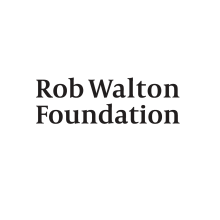 Rob Walton FoundationThe Rob Walton Foundation (RWF) – the RWF supports initiatives that advance its founder’s passion for environmental conservation and creative coalition building. Rob Walton has been an invaluable partner to African Parks since 2003, providing support to safeguard the long-term survival of parks and wildlife across the continent. In 2021, operating as the Rob and Melani Walton Foundation, the RWF made a transformational US$100m 5-year commitment, the largest endowment gift in African Parks’ history. Portions of the Foundation’s annual contributions have supported the reintroduction of species such as lion and black rhino to Akagera National Park, as well as sparked matching grants to Iona and Odzala-Kokoua, in conjunction with the Legacy Landscapes Fund.
Rob Walton FoundationThe Rob Walton Foundation (RWF) – the RWF supports initiatives that advance its founder’s passion for environmental conservation and creative coalition building. Rob Walton has been an invaluable partner to African Parks since 2003, providing support to safeguard the long-term survival of parks and wildlife across the continent. In 2021, operating as the Rob and Melani Walton Foundation, the RWF made a transformational US$100m 5-year commitment, the largest endowment gift in African Parks’ history. Portions of the Foundation’s annual contributions have supported the reintroduction of species such as lion and black rhino to Akagera National Park, as well as sparked matching grants to Iona and Odzala-Kokoua, in conjunction with the Legacy Landscapes Fund. -
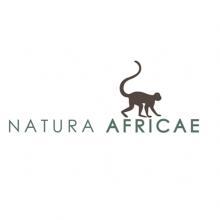 Natura AfricaeStichting Natura Africae – a charitable foundation established in 2017 by Jan Verhagen, a Dutch entrepreneur, Natura Africae is dedicated to the conservation of national parks and protected areas in Africa, recognising the reciprocal relationship between the livelihoods of local communities and the successful protection of an ecosystem’s wildlife. The Foundation provided €4,75m in 2022, supporting park operations in Liuwa Plain, Odzala-Kokoua, Matusadona, Nyungwe and Ennedi. The grant also provided catalytic funding to strengthen African Parks’ organisational costs and institutional platform.
Natura AfricaeStichting Natura Africae – a charitable foundation established in 2017 by Jan Verhagen, a Dutch entrepreneur, Natura Africae is dedicated to the conservation of national parks and protected areas in Africa, recognising the reciprocal relationship between the livelihoods of local communities and the successful protection of an ecosystem’s wildlife. The Foundation provided €4,75m in 2022, supporting park operations in Liuwa Plain, Odzala-Kokoua, Matusadona, Nyungwe and Ennedi. The grant also provided catalytic funding to strengthen African Parks’ organisational costs and institutional platform. -
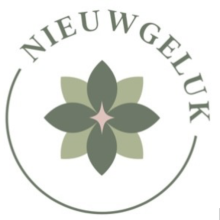 Stichting Nieuwgeluk PhilosophyStichting Nieuwgeluk Philosophy - supports large and small change-oriented initiatives that are sympathetic to people, animals and nature. The Foundation’s goal is to make heartwarming contributions that make a difference to the preservation of a liveable world for current and future generations. In 2022, Stichting Nieuwgeluk Philosophy supported Akagera National Park, Zakouma National Park and the Malawi elephant translocation.
Stichting Nieuwgeluk PhilosophyStichting Nieuwgeluk Philosophy - supports large and small change-oriented initiatives that are sympathetic to people, animals and nature. The Foundation’s goal is to make heartwarming contributions that make a difference to the preservation of a liveable world for current and future generations. In 2022, Stichting Nieuwgeluk Philosophy supported Akagera National Park, Zakouma National Park and the Malawi elephant translocation. -
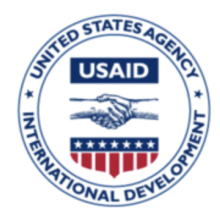 USAIDThe United States Agency for International Development (USAID) – the Agency operates the Central Africa Regional Programme for the Environment (CARPE), with the aim of conserving the ecological integrity of the Congo Basin Forest for the benefit of local people and the global community. With a commitment of US$28.9m since 2018, we have been able to carry out the core protected area management of Garamba National Park and Chinko Conservation Area. In addition, African Parks, in a consortium with African Wildlife Foundation, is improving community resilience and wildlife conservation in the Garamba Complex, which includes communities in the periphery of the park and in the Mbomou-Uele border region. Apart from a myriad of conservation and sustainable livelihood outcomes being achieved, this USAID partnership is contributing towards the establishment of a foothold for governance, security and stability for the surrounding communities, and the wider DRC-CARSouth Sudan transboundary landscape.
USAIDThe United States Agency for International Development (USAID) – the Agency operates the Central Africa Regional Programme for the Environment (CARPE), with the aim of conserving the ecological integrity of the Congo Basin Forest for the benefit of local people and the global community. With a commitment of US$28.9m since 2018, we have been able to carry out the core protected area management of Garamba National Park and Chinko Conservation Area. In addition, African Parks, in a consortium with African Wildlife Foundation, is improving community resilience and wildlife conservation in the Garamba Complex, which includes communities in the periphery of the park and in the Mbomou-Uele border region. Apart from a myriad of conservation and sustainable livelihood outcomes being achieved, this USAID partnership is contributing towards the establishment of a foothold for governance, security and stability for the surrounding communities, and the wider DRC-CARSouth Sudan transboundary landscape. -
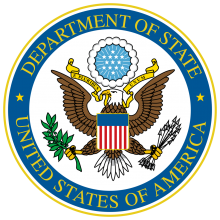 The U.S. Department of StateThe United States Department of State, through the Bureau of International Narcotics and Law Enforcement Affairs (INL), advances good governance, peace and security, which are prerequisites for sustainable economic development and the protection of natural resources. Since 2017, the INL has committed over US$9m to African Parks for critical law enforcement support in protected areas particularly in Chad, the DRC, Malawi, Zambia, the Republic of Congo and Benin. This support has focused on provision of ranger uniforms and patrol equipment, therefore motivating and increasing their efficiency, professionalization of law enforcement operations through refinement of law enforcement standard operating procedures, leadership development, human rights and other core training infrastructure. Intelligence units have been established to guide law enforcement operations and for more robust collaboration with national and regional security agencies, and conservation partners. INL also supports technology development, communication and information management, air surveillance, mobility equipment and canine units, as well as training of national government institutions such as the judiciary to enhance wildlife crime prosecution. Finally, INL is supporting the refinement of the organization’s Human Rights Statement of Principles, to align with the national laws of various governments, refinement of the training curriculum and training of law enforcement teams across the AP portfolio of parks on human rights to minimize violations. These interventions have strengthened parks’ capacity to counter poaching and illegal wildlife trade in these protected areas while promoting regional stability and the security of neighbouring communities. In 2023, INL has awarded AP an additional $2.8m to cover similar interventions in Odzala-Kokoua National Park in ROC, Pendjari National Park and W National Park in Benin, and the Greater Zakouma Ecosystem in Chad, over a period of two years.
The U.S. Department of StateThe United States Department of State, through the Bureau of International Narcotics and Law Enforcement Affairs (INL), advances good governance, peace and security, which are prerequisites for sustainable economic development and the protection of natural resources. Since 2017, the INL has committed over US$9m to African Parks for critical law enforcement support in protected areas particularly in Chad, the DRC, Malawi, Zambia, the Republic of Congo and Benin. This support has focused on provision of ranger uniforms and patrol equipment, therefore motivating and increasing their efficiency, professionalization of law enforcement operations through refinement of law enforcement standard operating procedures, leadership development, human rights and other core training infrastructure. Intelligence units have been established to guide law enforcement operations and for more robust collaboration with national and regional security agencies, and conservation partners. INL also supports technology development, communication and information management, air surveillance, mobility equipment and canine units, as well as training of national government institutions such as the judiciary to enhance wildlife crime prosecution. Finally, INL is supporting the refinement of the organization’s Human Rights Statement of Principles, to align with the national laws of various governments, refinement of the training curriculum and training of law enforcement teams across the AP portfolio of parks on human rights to minimize violations. These interventions have strengthened parks’ capacity to counter poaching and illegal wildlife trade in these protected areas while promoting regional stability and the security of neighbouring communities. In 2023, INL has awarded AP an additional $2.8m to cover similar interventions in Odzala-Kokoua National Park in ROC, Pendjari National Park and W National Park in Benin, and the Greater Zakouma Ecosystem in Chad, over a period of two years. -
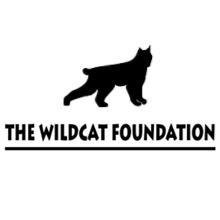 The Wildcat FoundationThe Wildcat Foundation – Wildcat is a private philanthropic foundation, whose purpose is to help save, and provide for the long-term conservation of, endangered wildlife and wild places in Africa. It supports innovative new approaches that disrupt traditional wildlife protection paradigms, focusing largely on medical training, aircraft, equipment, and technology for rangers. The Foundation first partnered with African Parks in 2014, supporting the historic 500 elephant move in Malawi. Over the years, Wildcat has invested in seven parks across six countries. In 2022, Wildcat continued its critical support for the development and implementation of law enforcement strategies at Garamba, which has resulted in a 95% reduction in elephant poaching. In addition, Wildcat’s support was key to a special initiative to strengthen security in Pendjari and W in Benin during 2022.
The Wildcat FoundationThe Wildcat Foundation – Wildcat is a private philanthropic foundation, whose purpose is to help save, and provide for the long-term conservation of, endangered wildlife and wild places in Africa. It supports innovative new approaches that disrupt traditional wildlife protection paradigms, focusing largely on medical training, aircraft, equipment, and technology for rangers. The Foundation first partnered with African Parks in 2014, supporting the historic 500 elephant move in Malawi. Over the years, Wildcat has invested in seven parks across six countries. In 2022, Wildcat continued its critical support for the development and implementation of law enforcement strategies at Garamba, which has resulted in a 95% reduction in elephant poaching. In addition, Wildcat’s support was key to a special initiative to strengthen security in Pendjari and W in Benin during 2022. -
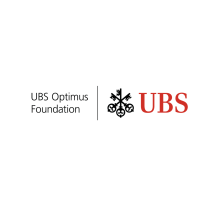 UBS Optimus FoundationThe UBS Optimus Foundation – a grantmaking organization, the Foundation offers UBS clients a platform to use their wealth to drive positive social and environmental change. The Foundation selects programmes that improve children’s health, education and protection, those with the potential to be transformative, scalable and sustainable, as well as programmes that tackle environmental and climate issues. In 2022, the Foundation awarded African Parks a multiyear grant in support of Nkhotakota Wildlife Reserve in Malawi.
UBS Optimus FoundationThe UBS Optimus Foundation – a grantmaking organization, the Foundation offers UBS clients a platform to use their wealth to drive positive social and environmental change. The Foundation selects programmes that improve children’s health, education and protection, those with the potential to be transformative, scalable and sustainable, as well as programmes that tackle environmental and climate issues. In 2022, the Foundation awarded African Parks a multiyear grant in support of Nkhotakota Wildlife Reserve in Malawi. -
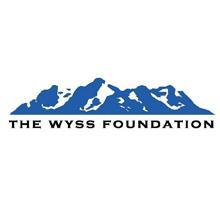 The Wyss FoundationThe Wyss Foundation is a private charitable organisation dedicated to supporting innovative, lasting solutions that improve lives, empower communities and strengthen connections to the land. The Foundation’s relationship with African Parks began in 2015 with a grant to support the restoration of Akagera National Park, followed by a significant investment in Malawi’s Liwonde National Park and Nkhotakota Wildlife Reserve. In 2017, the Foundation made a groundbreaking commitment of US$65m to provide ongoing support for Akagera and the Malawi parks, along with startup funding for five new parks. This enabled the addition of Pendjari and W in Benin, Bazaruto Archipelago National Park in Mozambique, Iona National Park in Angola and Matusadona National Park in Zimbabwe. In 2021, the Foundation furthered its support of African Parks with another extraordinary commitment of US$108 million, which will provide for the continued support of current Wyss-funded parks, as well as startup funding for another five new parks. Two new parks in our portfolio – Kafue National Park in Zambia and Badingilo National Park in South Sudan – are benefitting from the Wyss Foundation’s latest commitment.
The Wyss FoundationThe Wyss Foundation is a private charitable organisation dedicated to supporting innovative, lasting solutions that improve lives, empower communities and strengthen connections to the land. The Foundation’s relationship with African Parks began in 2015 with a grant to support the restoration of Akagera National Park, followed by a significant investment in Malawi’s Liwonde National Park and Nkhotakota Wildlife Reserve. In 2017, the Foundation made a groundbreaking commitment of US$65m to provide ongoing support for Akagera and the Malawi parks, along with startup funding for five new parks. This enabled the addition of Pendjari and W in Benin, Bazaruto Archipelago National Park in Mozambique, Iona National Park in Angola and Matusadona National Park in Zimbabwe. In 2021, the Foundation furthered its support of African Parks with another extraordinary commitment of US$108 million, which will provide for the continued support of current Wyss-funded parks, as well as startup funding for another five new parks. Two new parks in our portfolio – Kafue National Park in Zambia and Badingilo National Park in South Sudan – are benefitting from the Wyss Foundation’s latest commitment. -
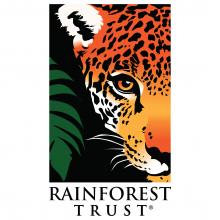 Rainforest TrustRainforest Trust – the Trust raises funds to support the creation and expansion of protected areas critical for biodiversity, saving endangered wildlife through partnerships and community engagement. For over 30 years, the Trust has successfully implemented conservation models that are cost-effective and engage a range of partners, including donors, leading experts, and communities. In 2021, Rainforest Trust partnered with African Parks to support a 6-year project to enhance the legal statute of the conservation area to create the Chinko National Park in the CAR, which functions as a catalyst for regional conservation initiatives. Not only does this increase our biodiversity footprint, it has moved more landscapes to protected area status. African Parks is grateful to have the Rainforest Trust as a partner for this US$8m commitment.
Rainforest TrustRainforest Trust – the Trust raises funds to support the creation and expansion of protected areas critical for biodiversity, saving endangered wildlife through partnerships and community engagement. For over 30 years, the Trust has successfully implemented conservation models that are cost-effective and engage a range of partners, including donors, leading experts, and communities. In 2021, Rainforest Trust partnered with African Parks to support a 6-year project to enhance the legal statute of the conservation area to create the Chinko National Park in the CAR, which functions as a catalyst for regional conservation initiatives. Not only does this increase our biodiversity footprint, it has moved more landscapes to protected area status. African Parks is grateful to have the Rainforest Trust as a partner for this US$8m commitment. -
 WWFWorld Wide Fund for Nature (WWF) – WWF has been supporting African Parks since 2007, with the goal of promoting the African Parks management model across Africa. WWF Zambia contributes to core operating costs and conservation projects in Liuwa Plain National Park and Bangweulu Wetlands. WWF Netherlands provides support to the Zambian parks. WWF Belgium became a strategic funding partner in 2017, supporting the Malawi parks and Liuwa Plain National Park.
WWFWorld Wide Fund for Nature (WWF) – WWF has been supporting African Parks since 2007, with the goal of promoting the African Parks management model across Africa. WWF Zambia contributes to core operating costs and conservation projects in Liuwa Plain National Park and Bangweulu Wetlands. WWF Netherlands provides support to the Zambian parks. WWF Belgium became a strategic funding partner in 2017, supporting the Malawi parks and Liuwa Plain National Park.
The success of African Parks’ management function is dependent on its host countries, their ministries, wildlife institutions and traditional authorities. Prioritising and strengthening these relationships are essential in gaining support and working together to achieve our common goal of protecting critical landscapes across Africa. The statutory role of our government partners is enshrined in our agreements, and their participation is guaranteed through approval of park business plans and budgets, as well as representation on each park’s board. We thank them all for the trust and confidence bestowed upon African Parks and their commitment to biodiversity conservation
-
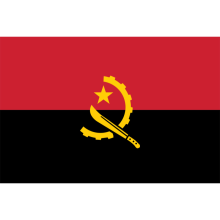 The Government of AngolaAfrican Parks signed a long-term management agreement for Iona National Park with the Angolan Ministry of Environment (MINAMB) and the National Institute of Biodiversity and Conservation (INBC) in 2019. The MINAMB is the ministerial department responsible for the formulation, execution and control of the Executive’s policy regarding environmental protection. This includes the preservation and conservation of environmental quality, pollution control, terrestrial and aquatic biodiversity, conservation areas and enhancement of the natural heritage, as well as the preservation and rational use of renewable natural resources. The INBC was created to ensure the implementation of the Biodiversity Conservation Policy and management of the National System of Conservation Areas. Ms Ana Paula Chantre Luna de Carvalho is the current Minister of the MINAMB and Ms Albertina Nzuzi Matias is the current Director General of the INBC.
The Government of AngolaAfrican Parks signed a long-term management agreement for Iona National Park with the Angolan Ministry of Environment (MINAMB) and the National Institute of Biodiversity and Conservation (INBC) in 2019. The MINAMB is the ministerial department responsible for the formulation, execution and control of the Executive’s policy regarding environmental protection. This includes the preservation and conservation of environmental quality, pollution control, terrestrial and aquatic biodiversity, conservation areas and enhancement of the natural heritage, as well as the preservation and rational use of renewable natural resources. The INBC was created to ensure the implementation of the Biodiversity Conservation Policy and management of the National System of Conservation Areas. Ms Ana Paula Chantre Luna de Carvalho is the current Minister of the MINAMB and Ms Albertina Nzuzi Matias is the current Director General of the INBC. -
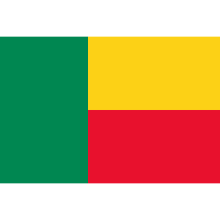 The Government of BeninThe Government of Benin signed an agreement with African Parks in May 2017 to revitalise, rehabilitate and develop Pendjari National Park. In June 2020, W National Park was added to the African Parks portfolio. The restoration of these parks is one of 45 flagship projects of the “Revealing Benin” national investment programme, announced by the Presidency of the Republic of Benin in December 2016. The Minister of the Living Environment and Sustainable Development ministry (Ministère du Cadre de Vie et du Développement Durable), José Tonato, the Director General of the National Centre of Management of Reserves and Protected Areas (CENAGREF), Abdel Aziz Baba-Moussa, and the Managing Director of the National Agency for the Promotion of Heritage and the Development of Tourism, Edmond Toli, have all played an instrumental role in this partnership.
The Government of BeninThe Government of Benin signed an agreement with African Parks in May 2017 to revitalise, rehabilitate and develop Pendjari National Park. In June 2020, W National Park was added to the African Parks portfolio. The restoration of these parks is one of 45 flagship projects of the “Revealing Benin” national investment programme, announced by the Presidency of the Republic of Benin in December 2016. The Minister of the Living Environment and Sustainable Development ministry (Ministère du Cadre de Vie et du Développement Durable), José Tonato, the Director General of the National Centre of Management of Reserves and Protected Areas (CENAGREF), Abdel Aziz Baba-Moussa, and the Managing Director of the National Agency for the Promotion of Heritage and the Development of Tourism, Edmond Toli, have all played an instrumental role in this partnership. -
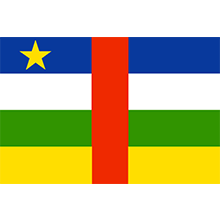 Central African Republic (CAR)In 2014, African Parks received the mandate to manage Chinko in partnership with the Ministry of Water, Forestry, Hunting and Fishing, which retains primary responsibility for sustainable management of forest resources, commercial forestry operations and governance of national parks in the CAR. An updated and revitalised mandate for Chinko was further signed in April 2020 with the minister, Idriss Amit, who has been instrumental in supporting the growth of protected area management in the CAR.
Central African Republic (CAR)In 2014, African Parks received the mandate to manage Chinko in partnership with the Ministry of Water, Forestry, Hunting and Fishing, which retains primary responsibility for sustainable management of forest resources, commercial forestry operations and governance of national parks in the CAR. An updated and revitalised mandate for Chinko was further signed in April 2020 with the minister, Idriss Amit, who has been instrumental in supporting the growth of protected area management in the CAR. -
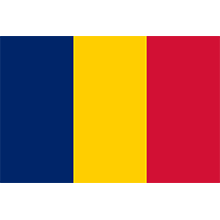 The Republic of ChadThe Republic of Chad is African Parks’ partner in the management of the Greater Zakouma Ecosystem – an extensive ecosystem that includes Zakouma National Park and Siniaka Minia Wildlife Reserve – as well as the Natural and Cultural Reserve of Ennedi and the Aouk Project. In 2010, under the advice of the European Union, the Chadian Government approached African Parks to assume management responsibility of Zakouma National Park, to help end the ongoing scourge of elephant poaching. The public-private management agreement was signed in June 2010, and in October African Parks commenced management of the park and its periphery. In 2017, a new 10-year agreement was signed for the development of the Functional Ecosystem of Zakouma, as well as a 15-year agreement for the creation, funding and management of the new Natural and Cultural Reserve of Ennedi. M. Mahamat Abdelkerim Hanno is the Minister of Environment, Fisheries and Sustainable Development (MEPDD) and M. Abderamane Chaibo is the Director of Wildlife
The Republic of ChadThe Republic of Chad is African Parks’ partner in the management of the Greater Zakouma Ecosystem – an extensive ecosystem that includes Zakouma National Park and Siniaka Minia Wildlife Reserve – as well as the Natural and Cultural Reserve of Ennedi and the Aouk Project. In 2010, under the advice of the European Union, the Chadian Government approached African Parks to assume management responsibility of Zakouma National Park, to help end the ongoing scourge of elephant poaching. The public-private management agreement was signed in June 2010, and in October African Parks commenced management of the park and its periphery. In 2017, a new 10-year agreement was signed for the development of the Functional Ecosystem of Zakouma, as well as a 15-year agreement for the creation, funding and management of the new Natural and Cultural Reserve of Ennedi. M. Mahamat Abdelkerim Hanno is the Minister of Environment, Fisheries and Sustainable Development (MEPDD) and M. Abderamane Chaibo is the Director of Wildlife -
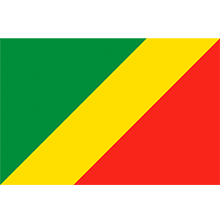 The Republic Of The CongoThe Ministry of Forest Economy executes national policy regarding sustainable development, forest economy and the environment. In 2010, African Parks signed its first public-private management agreement with the ministry for Odzala- Kokoua National Park. In 2020, an amendment to the agreement was signed with the minister, Madame Rosalie Matondo, adding the Lossi Gorilla Sanctuary to the protected area and creating the Odzala-Kokoua-Lossi Foundation as the management entity. Under the ministry, African Parks works with the Congolese Agency for Wildlife and Protected Areas (ACFAP in French), which is represented by its Director-General, Jean Bosco Nganongo.
The Republic Of The CongoThe Ministry of Forest Economy executes national policy regarding sustainable development, forest economy and the environment. In 2010, African Parks signed its first public-private management agreement with the ministry for Odzala- Kokoua National Park. In 2020, an amendment to the agreement was signed with the minister, Madame Rosalie Matondo, adding the Lossi Gorilla Sanctuary to the protected area and creating the Odzala-Kokoua-Lossi Foundation as the management entity. Under the ministry, African Parks works with the Congolese Agency for Wildlife and Protected Areas (ACFAP in French), which is represented by its Director-General, Jean Bosco Nganongo. -
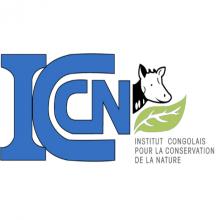 The Democratic Republic of the Congo (DRC)The Institut Congolais pour la Conservation de la Nature (ICCN) of the DRC is a public entity housed under the Ministry of Environment charged with the sustainable management of biodiversity in protected areas in the DRC, in cooperation with local communities and other partners. The ICCN manages a natural and cultural heritage made up of nine national parks and a constellation of 80 reserves covering over 13% of the country’s area. We began our work with the ICCN in Garamba National Park in 2005. The ICCN is currently under the leadership of Director General Milan Ngangay Yves.
The Democratic Republic of the Congo (DRC)The Institut Congolais pour la Conservation de la Nature (ICCN) of the DRC is a public entity housed under the Ministry of Environment charged with the sustainable management of biodiversity in protected areas in the DRC, in cooperation with local communities and other partners. The ICCN manages a natural and cultural heritage made up of nine national parks and a constellation of 80 reserves covering over 13% of the country’s area. We began our work with the ICCN in Garamba National Park in 2005. The ICCN is currently under the leadership of Director General Milan Ngangay Yves. -
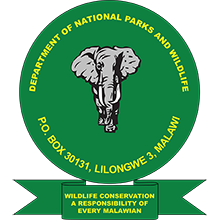 Malawi Department of National Parks and Wildlife (DNPW)The relationship with Malawi’s Department of National Parks and Wildlife (DNPW) is the longest-running partnership for African Parks, dating back to the agreement for the Majete Wildlife Reserve in 2003. The DNPW is the government agency responsible for the management and conservation of wildlife resources and the administration of the Wildlife Policy and National Parks and Wildlife Act. In 2015, African Parks signed an agreement with the Malawi Government, through the DNPW, to manage Nkhotakota Wildlife Reserve and Liwonde National Park. In 2018, Liwonde National Park was extended to include Mangochi Forest Reserve. Here African Parks has also partnered with the Department of Forestry, the government agency responsible for planning and providing technical extension and guidance, as well as facilitating forestry development on customary land and forest reserves. The Malawi Public-Private Partnership Commission (PPPC) facilitated the signing of these agreements. Mr Brighton Kumchedwa is the current Director of the DNPW.
Malawi Department of National Parks and Wildlife (DNPW)The relationship with Malawi’s Department of National Parks and Wildlife (DNPW) is the longest-running partnership for African Parks, dating back to the agreement for the Majete Wildlife Reserve in 2003. The DNPW is the government agency responsible for the management and conservation of wildlife resources and the administration of the Wildlife Policy and National Parks and Wildlife Act. In 2015, African Parks signed an agreement with the Malawi Government, through the DNPW, to manage Nkhotakota Wildlife Reserve and Liwonde National Park. In 2018, Liwonde National Park was extended to include Mangochi Forest Reserve. Here African Parks has also partnered with the Department of Forestry, the government agency responsible for planning and providing technical extension and guidance, as well as facilitating forestry development on customary land and forest reserves. The Malawi Public-Private Partnership Commission (PPPC) facilitated the signing of these agreements. Mr Brighton Kumchedwa is the current Director of the DNPW. -
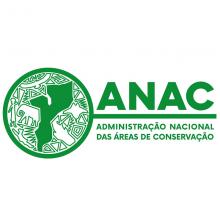 The Republic of MozambiqueIn December 2017, African Parks signed a 25-year co- management agreement with Mozambique’s National Administration of Conservation Areas (ANAC), to restore, develop and manage Bazaruto Archipelago National Park, and revitalise it to become one of the leading and most productive marine protected areas in East Africa. Celmira Frederico Pena da Silva is the current Director General of ANAC.
The Republic of MozambiqueIn December 2017, African Parks signed a 25-year co- management agreement with Mozambique’s National Administration of Conservation Areas (ANAC), to restore, develop and manage Bazaruto Archipelago National Park, and revitalise it to become one of the leading and most productive marine protected areas in East Africa. Celmira Frederico Pena da Silva is the current Director General of ANAC. -
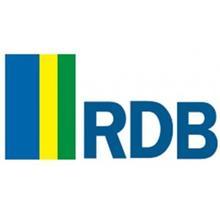 The Republic of RwandaThe Rwanda Development Board (RDB) is the government agency responsible for managing Rwanda’s national parks and protected areas. Its mission is to transform and develop Rwanda’s economy by enabling its private-sector growth. African Parks began its work with the RDB in Akagera National Park in 2010 and in Nyungwe National Park in 2020. In both agreements we recognise RDB CEO, Ms Clare Akamanzi, for her unwavering support of Akagera and Nyungwe.
The Republic of RwandaThe Rwanda Development Board (RDB) is the government agency responsible for managing Rwanda’s national parks and protected areas. Its mission is to transform and develop Rwanda’s economy by enabling its private-sector growth. African Parks began its work with the RDB in Akagera National Park in 2010 and in Nyungwe National Park in 2020. In both agreements we recognise RDB CEO, Ms Clare Akamanzi, for her unwavering support of Akagera and Nyungwe. -
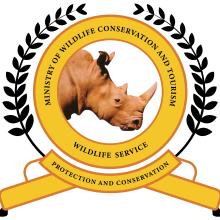 The Republic of South SudanIn August 2022, the Government of South Sudan signed a 10-year renewable management agreement with African Parks for Boma and Badingilo National Parks, including the wildlife corridors and proposed extension zones in the broader landscape – an area extending over three million hectares. With this commitment, the South Sudanese Government has ensured the long-term protection of these vital ecosystems, to secure lasting benefits for people and wildlife. This partnership is made possible by the Ministry of Wildlife Conservation and Tourism (MWCT), through the South Sudan Wildlife Service (SSWS), the legal authority under the ministry responsible for management of wildlife and protected areas in South Sudan. His Excellency Rizik Zakaria Hassan is the Minister of the MWCT.
The Republic of South SudanIn August 2022, the Government of South Sudan signed a 10-year renewable management agreement with African Parks for Boma and Badingilo National Parks, including the wildlife corridors and proposed extension zones in the broader landscape – an area extending over three million hectares. With this commitment, the South Sudanese Government has ensured the long-term protection of these vital ecosystems, to secure lasting benefits for people and wildlife. This partnership is made possible by the Ministry of Wildlife Conservation and Tourism (MWCT), through the South Sudan Wildlife Service (SSWS), the legal authority under the ministry responsible for management of wildlife and protected areas in South Sudan. His Excellency Rizik Zakaria Hassan is the Minister of the MWCT. -
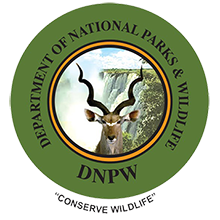 The Republic of ZambiaThe Zambian Department of National Parks and Wildlife (DNPW), under the Ministry of Tourism, works to protect and conserve Zambia’s wildlife estates and improve the quality of life among communities, while maintaining healthy biodiversity. African Parks began its work with the DNPW in Liuwa Plain National Park in 2003 and in the Bangweulu Wetlands in 2008. Mr Andrew Chomba is the current Acting Director of the DNPW.
The Republic of ZambiaThe Zambian Department of National Parks and Wildlife (DNPW), under the Ministry of Tourism, works to protect and conserve Zambia’s wildlife estates and improve the quality of life among communities, while maintaining healthy biodiversity. African Parks began its work with the DNPW in Liuwa Plain National Park in 2003 and in the Bangweulu Wetlands in 2008. Mr Andrew Chomba is the current Acting Director of the DNPW. -
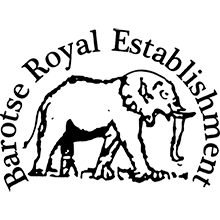 The Barotse Royal Establishment (BRE)The BRE is recognised by the Zambian Government as an official community administrative entity in Western Province and, as such, is an essential partner in the Liuwa Plain project. His Majesty the Litunga Lubosi Imwiko II and the Limulunga Kuta (Parliament) played an instrumental role in assisting the Zambian Government to conclude an agreement with African Parks in 2003. Since then, the Litunga has maintained an active role in guiding the project through the participation of two BRE representatives on the Liuwa Board.
The Barotse Royal Establishment (BRE)The BRE is recognised by the Zambian Government as an official community administrative entity in Western Province and, as such, is an essential partner in the Liuwa Plain project. His Majesty the Litunga Lubosi Imwiko II and the Limulunga Kuta (Parliament) played an instrumental role in assisting the Zambian Government to conclude an agreement with African Parks in 2003. Since then, the Litunga has maintained an active role in guiding the project through the participation of two BRE representatives on the Liuwa Board. -
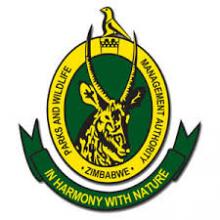 The Republic of ZimbabweThe Zimbabwe Parks and Wildlife Management Authority (PWMA) operates under the Parks and Wildlife Act [Chapter20:14] of 2001. The Authority manages about five million hectares of land – or 13% of Zimbabwe’s total land area. Mandated with the protection, management and administration of the wildlife of Zimbabwe, the Authority has a proud history of sound management that endeavours to preserve the unique flora and fauna heritage of Zimbabwe. African Parks signed a 20-year mandate with the PWMA for Matusadona National Park in 2019. Mr Fulton Mangwanya is the current Director General of the PWMA.
The Republic of ZimbabweThe Zimbabwe Parks and Wildlife Management Authority (PWMA) operates under the Parks and Wildlife Act [Chapter20:14] of 2001. The Authority manages about five million hectares of land – or 13% of Zimbabwe’s total land area. Mandated with the protection, management and administration of the wildlife of Zimbabwe, the Authority has a proud history of sound management that endeavours to preserve the unique flora and fauna heritage of Zimbabwe. African Parks signed a 20-year mandate with the PWMA for Matusadona National Park in 2019. Mr Fulton Mangwanya is the current Director General of the PWMA.
Other Partners
-
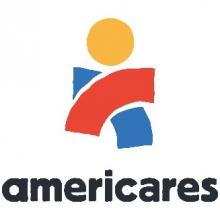 AmericaresAmericares is a health-focused relief and development organization that saves lives and improves health for people affected by poverty or disaster. Each year, Americares reaches more than 90 countries, including the United States, with life-changing health programs, medicine and medical supplies. Americares is the world’s leading nonprofit provider of donated medicine and medical supplies.
AmericaresAmericares is a health-focused relief and development organization that saves lives and improves health for people affected by poverty or disaster. Each year, Americares reaches more than 90 countries, including the United States, with life-changing health programs, medicine and medical supplies. Americares is the world’s leading nonprofit provider of donated medicine and medical supplies. -
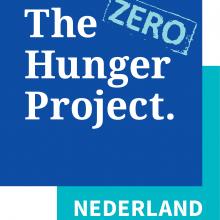 The Hunger ProjectThe Hunger Project works on ending hunger and poverty by pioneering sustainable, grassroots, women centered strategies and advocating for their widespread adoption in countries throughout the world. The Hunger Project currently reaches more than 17 million people in nearly 16.000 villages in Africa, Asia and Latin America. For more information about The Hunger Project visit www.thp.org and www.thehungerproject.nlis, alternatively click the above link to view the impact The Hunger Project is making around Majete Wildlife Reserve in Malawi.
The Hunger ProjectThe Hunger Project works on ending hunger and poverty by pioneering sustainable, grassroots, women centered strategies and advocating for their widespread adoption in countries throughout the world. The Hunger Project currently reaches more than 17 million people in nearly 16.000 villages in Africa, Asia and Latin America. For more information about The Hunger Project visit www.thp.org and www.thehungerproject.nlis, alternatively click the above link to view the impact The Hunger Project is making around Majete Wildlife Reserve in Malawi.